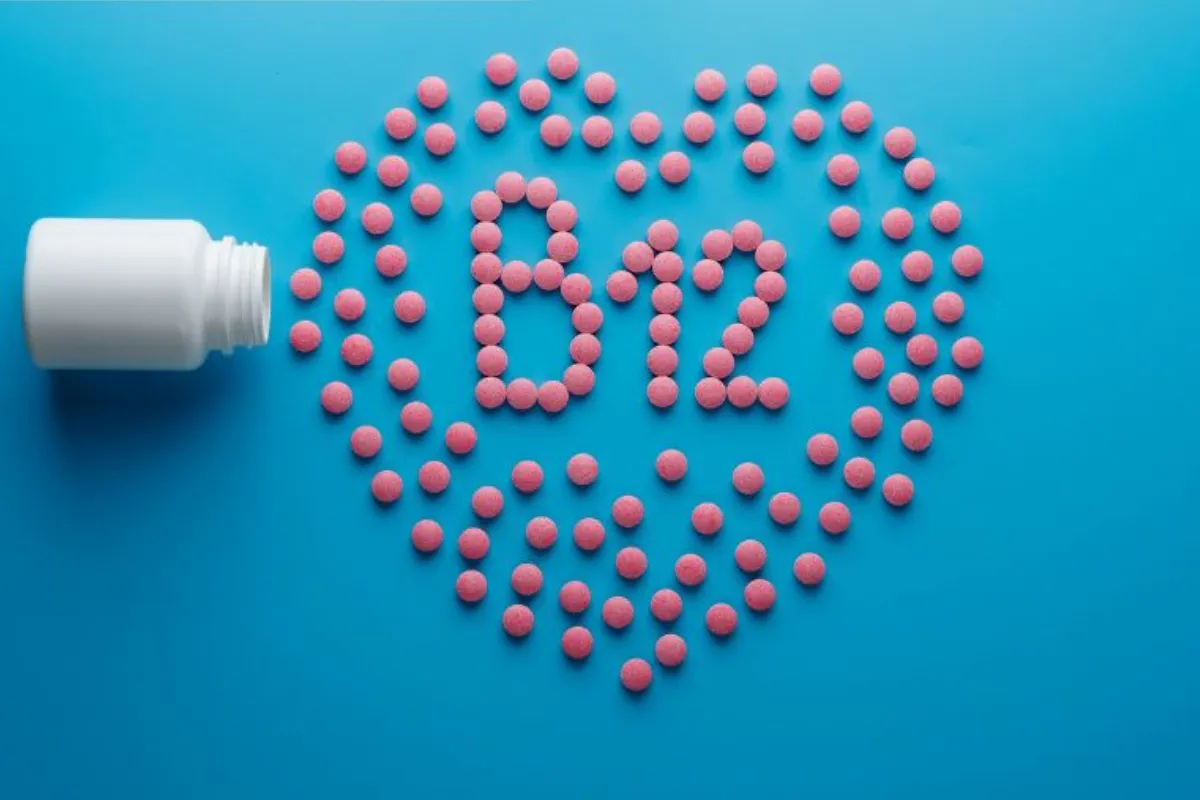Vitamin B12, just like protein, calcium, and iron, is a powerhouse nutrient keeping your body healthy and strong. But a lack of this crucial vitamin can lead to weakness and a host of health concerns. Here’s why B12 matters and how to keep your levels in check:
B12: Beyond Glowing Skin, It’s Brain & Nerve Power!
Dr. Priyanka Sehrawat, a leading neurologist, warns that B12 deficiency isn’t just about skin issues. It can lead to:
- Recurring mouth ulcers: Those painful sores keep popping up? B12 might be the culprit.
- Nerve problems and damage: Tingling, burning, or numbness in hands and feet can be signs of nerve troubles linked to B12 deficiency.
- Memory loss: This can be especially concerning for younger individuals (20-40 years old) as B12 deficiency can impact brain function.
Sneaky Culprits Behind Low B12:
Several factors can lead to B12 deficiency, including:
- Diet: Strict vegan or vegetarian diets lacking animal products, a common B12 source.
- Digestive issues: Conditions like Crohn’s disease or celiac disease can hinder B12 absorption.
- Age: As we age, our ability to absorb B12 naturally declines.
Where’s the B12 Buzz? Your Food Choices Hold the Key!
Vitamin B12 is found in some tasty treats, like:
- Eggs: Start your day with a sunny-side-up B12 boost!
- Meat: From chicken and lamb to fish, these are excellent sources of B12.
For Vegetarians:
- Fortified foods: Your best bet to meet B12 needs. Explore fortified cereals, nutritional yeast, and plant milks.
- Paneer: This Indian cottage cheese is a good source of B12 for vegetarians.
- Rajma (kidney beans): A protein-packed bean rich in iron and B vitamins, including B12.
- Apples: Surprisingly, apples contain small amounts of B12. While not a significant source, they can contribute to your overall intake.
- Mushrooms: Certain mushrooms like portobello pack a B12 punch.
How Much B12 Do You Need?
The magic number for adults over 14 is 2.4 micrograms (mcg) of B12 daily. Pregnant and breastfeeding women need a bit more, around 2.6 mcg and 2.8 mcg respectively.
When to Suspect B12 Deficiency
Dr. Sehrawat emphasizes that experiencing memory issues in your 20s-40s warrants immediate testing for B12 deficiency. Don’t ignore these potential signs:
- Fatigue and weakness
- Pale skin
- Loss of appetite
- Mood changes
- Difficulty maintaining balance
Simple Steps to Keep Your Health Shining
If you suspect a deficiency, consult your doctor for diagnosis and treatment. They might recommend:
- Dietary changes: Include B12-rich foods like eggs, meat, and fish in your diet.
- Supplements: In some cases, your doctor might prescribe B12 supplements.
Disclaimer: This material, including advice, provides general information only. It is in no way a substitute for a qualified medical opinion. Take the methods, and claims mentioned in this article as suggestions only; DNP India does not confirm or refute them. Consult a doctor before implementing any such suggestions/ treatment/medicine/diet.
Keep watching our YouTube Channel ‘DNP INDIA’. Also, please subscribe and follow us on FACEBOOK, INSTAGRAM, and TWITTER









